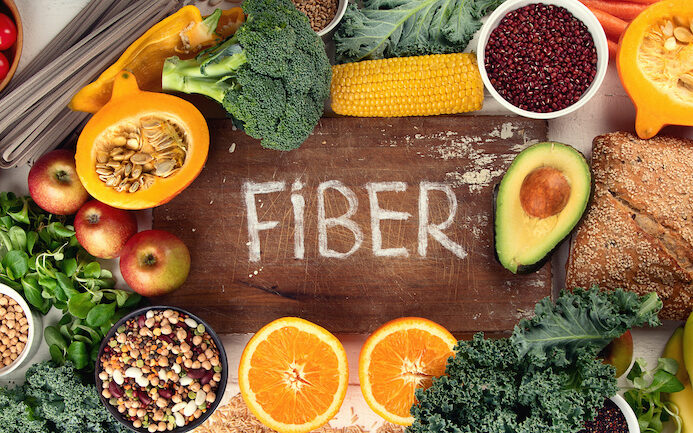Understanding the Role of Dietary Fiber in Preventing Chronic Diseases

Introduction
Dietary fiber is a powerful yet often overlooked component of a healthy diet. Beyond promoting digestive health, fiber plays a crucial role in preventing chronic diseases like diabetes, heart disease, and certain types of cancer. This article explores the types of fiber, their health benefits, and ways to incorporate more fiber into your meals.
Types of Dietary Fiber
Soluble Fiber:
- Dissolves in water to form a gel-like substance. Found in oats, beans, apples, and citrus fruits, soluble fiber helps lower cholesterol and regulate blood sugar.
Insoluble Fiber:
- Adds bulk to stool and promotes regular bowel movements. Found in whole grains, nuts, seeds, and vegetables, insoluble fiber supports digestive health.
Health Benefits of Dietary Fiber
Prevents Heart Disease:
- Soluble fiber reduces LDL (bad) cholesterol, improving heart health and reducing the risk of cardiovascular diseases.
Regulates Blood Sugar:
- Fiber slows the absorption of sugar, preventing spikes in blood glucose levels and reducing the risk of type 2 diabetes.
Aids in Weight Management:
- High-fiber foods promote satiety, helping you feel full longer and reducing overall calorie intake.
Supports Digestive Health:
- Insoluble fiber prevents constipation and reduces the risk of conditions like diverticulitis and hemorrhoids.
Reduces Cancer Risk:
- A high-fiber diet is linked to a lower risk of colorectal cancer. Fiber supports gut health by promoting the growth of beneficial bacteria.

How to Increase Fiber Intake
Start Your Day with Fiber:
- Choose whole-grain cereals or oatmeal topped with fruits and nuts for a fiber-rich breakfast.
Snack on Fruits and Vegetables:
- Keep cut fruits and vegetables like carrots, apples, and celery on hand for healthy snacking.
Swap Refined Grains for Whole Grains:
- Replace white rice, pasta, and bread with brown rice, whole-grain pasta, and whole-grain bread.
Add Beans and Legumes to Meals:
- Incorporate beans, lentils, and chickpeas into soups, salads, and stews for a fiber boost.
Stay Hydrated:
- Fiber works best when paired with adequate hydration to prevent digestive discomfort.
Conclusion
Dietary fiber is essential for preventing chronic diseases and maintaining overall health. By including fiber-rich foods like whole grains, fruits, vegetables, and legumes in your diet, you can enjoy a healthier lifestyle and reduce the risk of serious health conditions.
Summary:
- Soluble and insoluble fiber promote heart health, regulate blood sugar, and support digestion.
- Fiber reduces the risk of chronic diseases like heart disease, type 2 diabetes, and colorectal cancer.
- Incorporate fiber-rich foods into your diet by choosing whole grains, fruits, vegetables, and legumes.

This article reviewed by Dr. Jim Liu, MD and Ms. Deb Dooley, APRN.
There’s nothing more important than our good health – that’s our principal capital asset.
#medical #telehealth #umedoc










